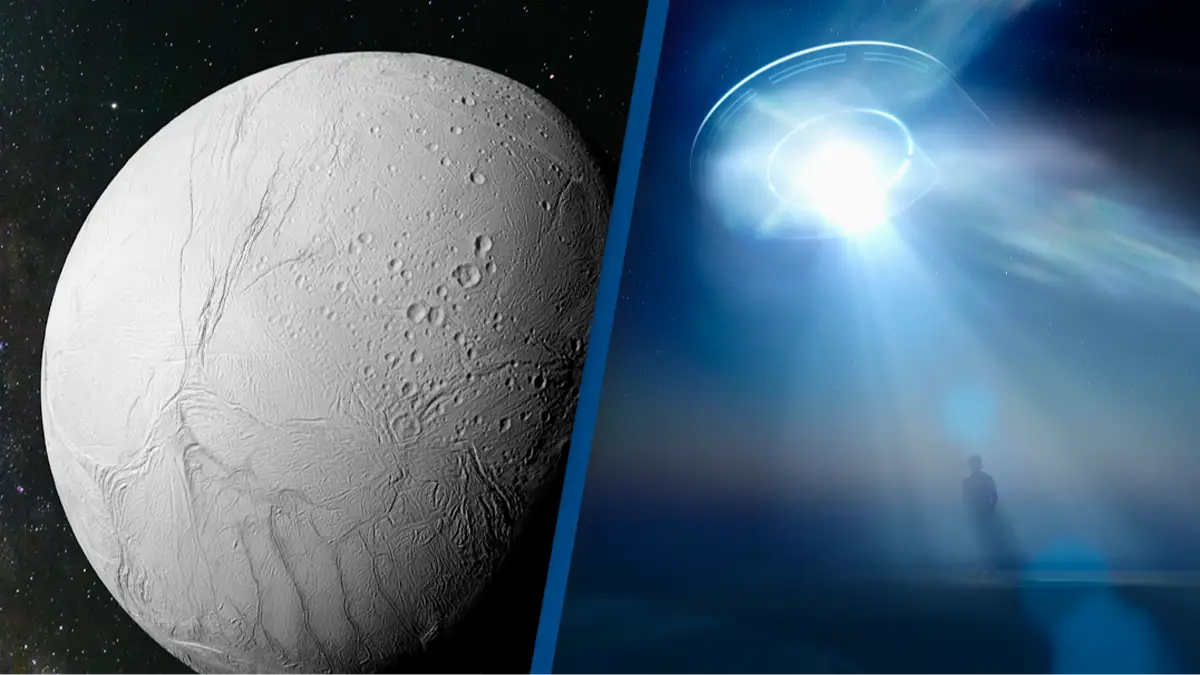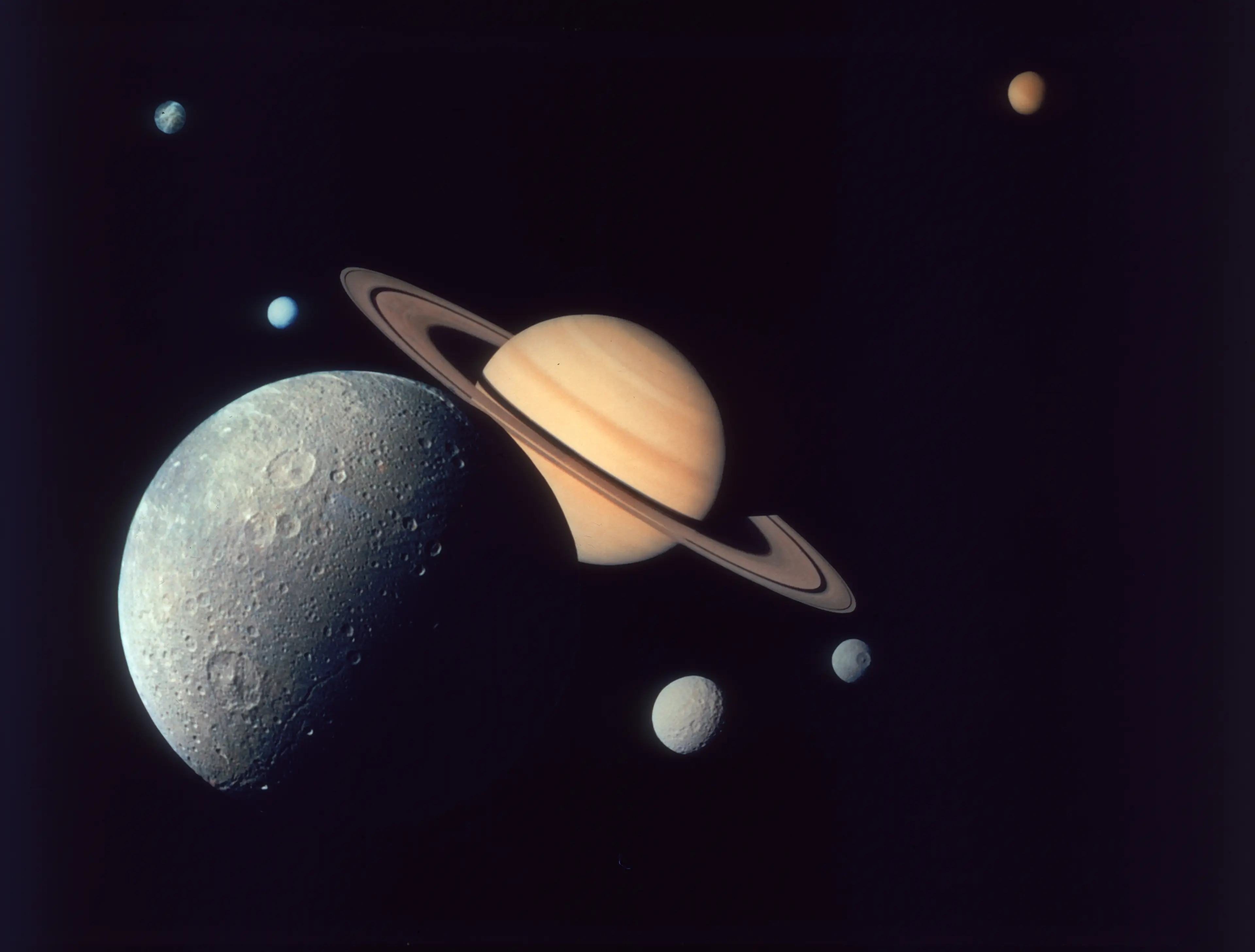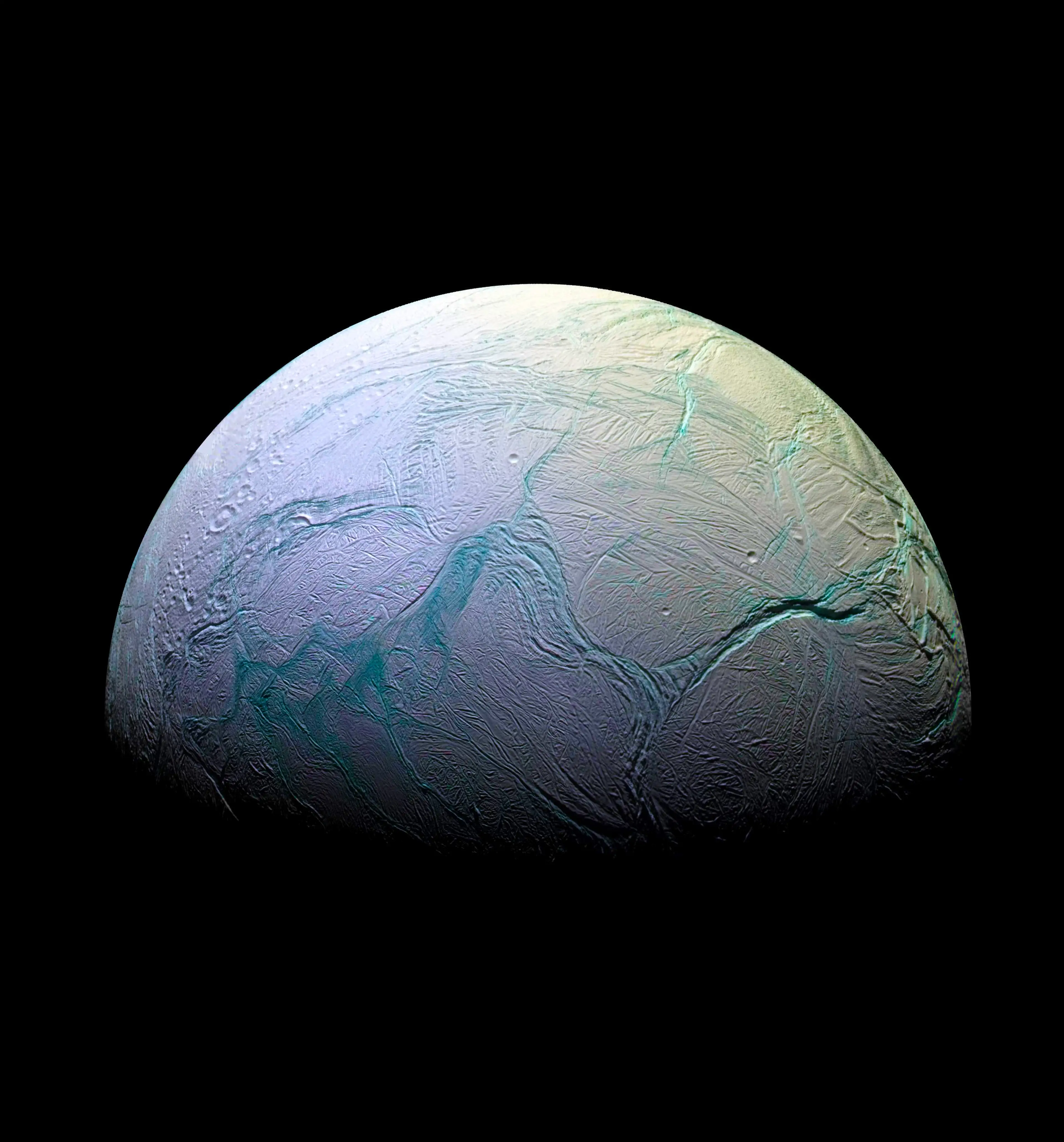
Alien life may be a lot closer to home than previously thought, following new evidence provided regarding a moon of Saturn.
When a lot of people think of aliens they tend to think of little gray or green big-headed figures. But for NASA scientists, this rarely appears to be the case.
A new study that has been sifting through data gathered on Saturn’s moon Enceladus, has suggested the moon may have conditions suitable for other worldly life to develop.
Advert
To put things into perspective, Enceladus is ‘rich with organic compounds, some of which are important for life as we know it’, according to a press release by NASA’s Jet Propulsion Laboratory (JPL) department.
And they have known the moon releases giant plumes of ice grains and water vapor.
NASA scientists have said, through their analysis of the data they have, there is ‘strong confirmation of hydrogen cyanide, a molecule that is key to the origin of life’ in the plume.
“The researchers also uncovered evidence that the ocean, which is hiding below the moon’s icy outer shell and supplies the plume, holds a powerful source of chemical energy. Unidentified until now,” according to the department.

While this doesn’t quite confirm the existence of saucer-piloting intelligent beings, it could mean the moon could have the building blocks of life and sustain it.
Lead author of the study Jonah Peter, a doctoral researcher at Harvard, formerly from NASA’s JPL department, said: “Our work provides further evidence that Enceladus is host to some of the most important molecules for both creating the building blocks of life and for sustaining that life through metabolic reactions.
“Not only does Enceladus seem to meet the basic requirements for habitability, we now have an idea about how complex biomolecules could form there, and what sort of chemical pathways might be involved.”

JPL’s Kevin Hand, co-author of the study and principal investigator of the team also explained just how hospitable the moon might be.
In 2017, scientists believed the combination of carbon dioxide, methane, and hydrogen in the plume was suggestive of methanogenesis, a metabolic process that produces methane on the moon.
This process happens on Earth and is believed to have been critical to the origin of the planet.
“If methanogenesis is like a small watch battery, in terms of energy, then our results suggest the ocean of Enceladus might offer something more akin to a car battery,” Hand said.
“[It could be] capable of providing a large amount of energy to any life that might be present."
Topics: Science, Space, NASA, World News, Technology